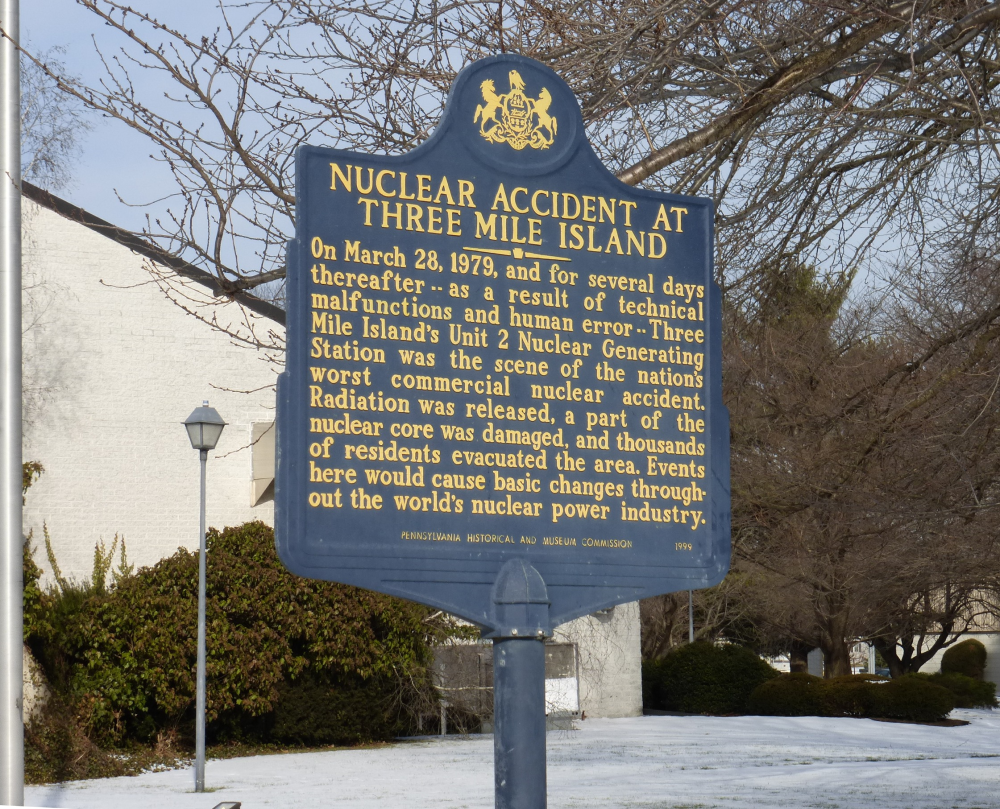At 4 am on March 28, 1979, disaster struck Three Mile Island. It would become the worst nuclear accident in the history of the United States, leaking radiation into Pennsylvania, and almost causing what CBS news anchor Walter Cronkite said would’ve been “the worst nuclear power plant accident of the atomic age.”
Rather unfortunately, it seems it all may have hinged on a stomach.
On that fateful day, the Three Mile Island nuclear power plant experienced a “loss of coolant accident” affecting one of its two reactors. This occurred because a valve that was meant to be closed was left open, releasing the water that was supposed to act as a coolant for the TMI-2 nuclear reactor core.
As the water drained away, the exposed core overheated, and in a confusing and unfortunate sequence of events, plant operators made the decision to switch off the emergency water that could’ve cooled it back down. Without coolant, the exposed part of the core started to cook as temperatures in the reactor soared to 2,371°C (4,300°F), explains Atomic Archive.
A nuclear meltdown like the devastation that struck Chernobyl is caused by overheating, and Three Mile Island came dangerously close to meeting the same fate. Fortunately, a meltdown didn’t occur but there was a radiation leak caused by a rupture in the plant’s auxiliary building, writes Natasha Zaretsky in “Atomic Nightmares And Biological Citizens At Three Mile Island”.
It was thought that few were harmed by the near-critical incident, but recent research into epidemiological data regarding cancer, heart disease, and early mortality among local residents suggests otherwise.
Pennsylvania only narrowly avoided a nuclear meltdown.
According to an article from the Washington Post published six weeks after the nuclear accident, the situation with the open valve may have gone unchecked for a prolonged period due to… visibility issues. They say the Nuclear Regulatory Commission special task force reported that:
“An operator inadvertently blocked with his body the view of indicators that would have told him two crucial feedwater pump valves were closed. NRC sources explained after the meeting that the operator was ‘a big man with a large belly that hung over the instrument panel.’”
Without those crucial indicators in view, plant operators were unaware of the unfolding situation in reactor two and believed there to be coolant at the core because of “gurgles and thumps” within the steam generator. Further calamity followed as they were asked to wear face masks and respirators, preventing them from communicating with each other. A request to evacuate also fell flat on its face, as only half the operators left, leaving the door open as they went.
In a fitting conclusion to a messy day at work, a computer that was meant to record the sequence of events that occurred during the accident got jammed for an hour and a half right when the disaster was at its peak. This meant they were two hours behind what was actually going on, and were largely lost altogether.
Something to give you a little perspective the next time you screw up at work.
Source Link: How A Stomach May Have Caused The Worst Nuclear Accident In American History
